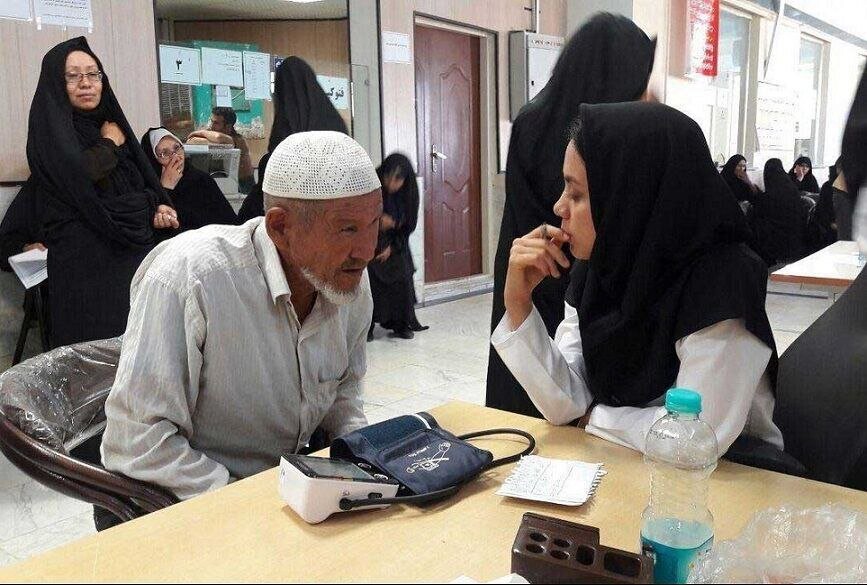Thousands of deported Afghans get health services at border terminal

TEHRAN – Some 36,000 illegal Afghan refugees have benefited from medical services offered on the Dogharon border terminal in Taybad, north-eastern Khorasan Razavi province, while returning to their home country, an official with the health ministry has said.
They were visited by physicians and received nursing services. They were also educated about proper hygiene practices and ways to avoid communicable diseases. Also, suspicious cases received testing, IRNA quoted Soudabeh Nekouhi as saying.
Heatstroke, food poisoning, and high blood pressure were among the main reasons to visit the health center, she added.
From the beginning of the current Iranian year (March 21), medical products worth one billion rials (almost 1.150 dollars) have been distributed among undocumented refugees in Dogharon. Moreover, 22,492 Afghans who have legally entered the country were screened, and 10,753 individuals were vaccinated as part of the prevention program, Nekouhi said.
All the Afghan nationals, 85 percent of whom are men, are screened and tested for 16 different diseases, she further noted.
Authorized refugees won’t be deported
Interior Minister Eskandar Momeni has said the country is not planning to deport documented and authorized refugees.
“We are only deporting the two million Afghans who are illegally residing in Iran,” he said.
“Iran is not an anti-immigrant country, as it is hosting six million foreign nationals. Since the beginning of the current Iranian year (March 21), some 800,000 out of the two million undocumented refugees left the country,” ISNA quoted Momeni as saying on July 18.
“These are honorable people who have contributed to the country’s production. Based on regulations, unauthorized refugees must leave the country. If they wish to live here, they have to follow legal procedures,” the official further noted.
From March 21 to June 27, a total of 717,658 Afghans have returned to Afghanistan; more than 80 percent of them have left the country voluntarily.
According to the head of the National Organization for Migration, Nader Yar-Ahmadi, there has been no change in the residency and the kind of services provided to documented Afghans residing in the country.
On the contrary, they will benefit from more services as illegal nationals leave the country, IRNA reported.
“The majority of these nationals are employees or students; we normally consider employment as a foundation for residency in our long-term planning,” IRNA quoted Yar-Ahmadi as saying.
The official went on to say that the presence of illegal migrants in any country poses many challenges, and in critical situations, they will be the main suspects. Their presence negatively impacts the economy, social, and security sectors.
Global experience has shown that migrants at most can account for three percent of the population of any country. With Iran’s population estimated to reach around 90 million next year, the figure will amount to three million migrants. Currently, there are more than 6.1 million nationals living in the country, which should gradually decrease, Yar-Ahmadi added.
MT/MG
